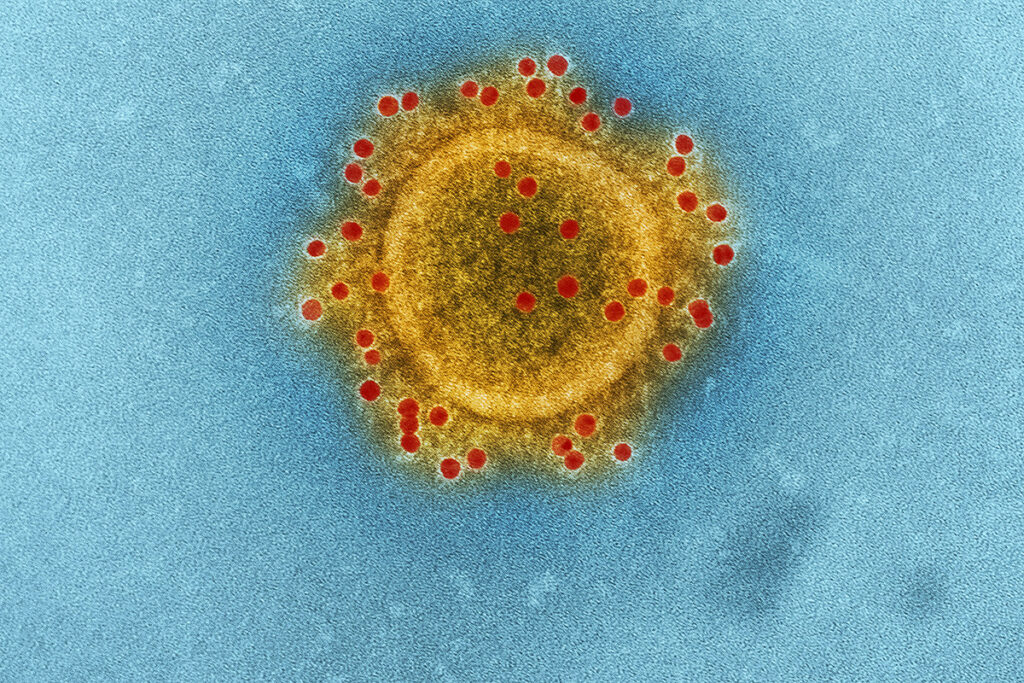Interferon-alpha-2b reduces the likelihood of intensive care and improves the survival of patients suffering from serious diseases. This result was shown by a study involving 2,165 patients with COVID-19. Interferon-alpha-2b and -2a and their pegylated forms in combination with ribavirin or favipiravir are also used to treat patients with COVID-19. It is less effective where vaccination is not available and for people whose SARS-CoV-2 vaccine is less effective.
In addition to the coronavirus, infections caused by dengue, Chikungunya, and Zika viruses pose a severe problem for public health worldwide. Mosquitoes carry all three viruses. The dengue virus causes fever, internal bleeding, and cardiovascular disorders, which in extreme cases lead to dengue shock syndrome – an increase in diastolic pressure to a systolic level and a decrease in pulse pressure. The Zika virus is associated with severe neurological manifestations, such as Guillain-Barre syndrome and congenital microcephaly in newborns and fetuses. Chikungunya virus causes severe fever, joint pain, headache, myalgia, and polyarthritis. The acute phase lasts a week, but joint pain can persist for several months and years.
The problem with these viruses is that there are still no drugs for prevention and treatment. Treatment is limited to maintenance therapy with glucocorticoids, antipyretic, and nonsteroidal anti-inflammatory drugs. All these drugs have numerous side effects.
Interferon-Alpha Suppresses Dengue, Zika, and Chikungunya Viruses
In a laboratory study, recombinant interferon-alpha (IFN) combined with favipiravir suppressed the Zika virus without damaging healthy cells even with high doses. In another laboratory study, IFN-alpha combined with sofosbuvir reduced the number of Zika virus-infected cells more than both drugs separately.
In combination with ribavirin and separately, IFN-alpha suppressed the replication of dengue and Chikungunya viruses. Another study of the Chikungunya virus showed that IFN-alpha combined with ribavirin reduced viral load by 99% during the first 24 hours of treatment.
Pros and Cons of Interferon-Alpha
Interferon-alpha regulates the body’s antiviral reactions and cell growth. IFN-alpha is usually expressed at a deficient level in leukocytes in response to stimuli such as viral infections, foreign proteins, cytokines, and growth factors. Interferon-alpha-2B and -2A are successfully used to treat numerous viral diseases, including Kaposi’s sarcoma-associated with AIDS and chronic hepatitis B and C.
The main disadvantage of recombinant interferon-alpha-2B is rapid excrement from the body. Therefore, it requires frequent administration of high doses, leading to severe side effects.
A more stable pegylated interferon-alpha coupled with polyethylene glycol was developed to solve this problem. Although pegylated interferon is more slowly excreted from the body, several studies have reported that it is ineffective for treating patients with chronic hepatitis C, as it is associated with the development of neutralizing antibodies against IFN-alpha.
GMOP-IFN-Alpha-2b: Stable Non-Immunogenic Interferon
Argentine scientists have developed hyperglycosylated recombinant interferon-alpha-2b, which has more excellent stability but does not cause the formation of antibodies to interferon. Scientists have named it GMOP-IFN-alpha-2b.
The half-life of GMOP-IFN-alpha-2b is obtained from plasma 25 times longer than that of conventional interferon. To avoid the formation of antibodies to interferon, scientists conducted a deimmunization procedure – the replacement of amino acids that can activate T cells and cause a subsequent antibody response. At the same time, GMOP-IFN-alpha-2b retained antiviral activity.
One of the most frequent side effects of antiviral therapy with recombinant interferon is alpha is a decrease in the number of neutrophils, which is often associated with dose adjustment or early cancellation of treatment. It happens because interferon-alpha has an antiproliferative effect – it suppresses cell reproduction. GMOP-IFN-alpha-2b exhibits less than 1% of the initial antiproliferative activity of interferon. Therefore, it does not cause neutropenia.
Conclusion
Interferon, combined with antiviral drugs and as monotherapy, can effectively treat such dangerous diseases as dengue, Zika, Chikungunya viruses, hepatitis B and C, coronavirus, and influenza.
However, interferon is rapidly excreted from the body, so treatment with interferon requires frequent administration of high doses, associated with severe side effects such as hematological toxicity, neutropenia, and the formation of antibodies interferon.
GMOP-IFN-alpha-2b is more stable and is excreted from the body more slowly, maintaining antiviral activity. At the same time, GMOP-IFN-alpha-2b does not have an antiproliferative effect and does not cause the formation of antibodies to interferon.
Patients with chronic hepatitis C often develop anemia, leukopenia, neutropenia, and thrombocytopenia after administration of IFN. Therapeutic doses of interferon can reduce the number of neutrophils by 30-50%, dramatically increasing the risk of bacterial infections and sepsis. As GMOP-IFN-alpha-2b, which does not have antiproliferative properties, while maintaining antiviral activity, it can help patients with chronic hepatitis C and other chronic and acute viral diseases.



